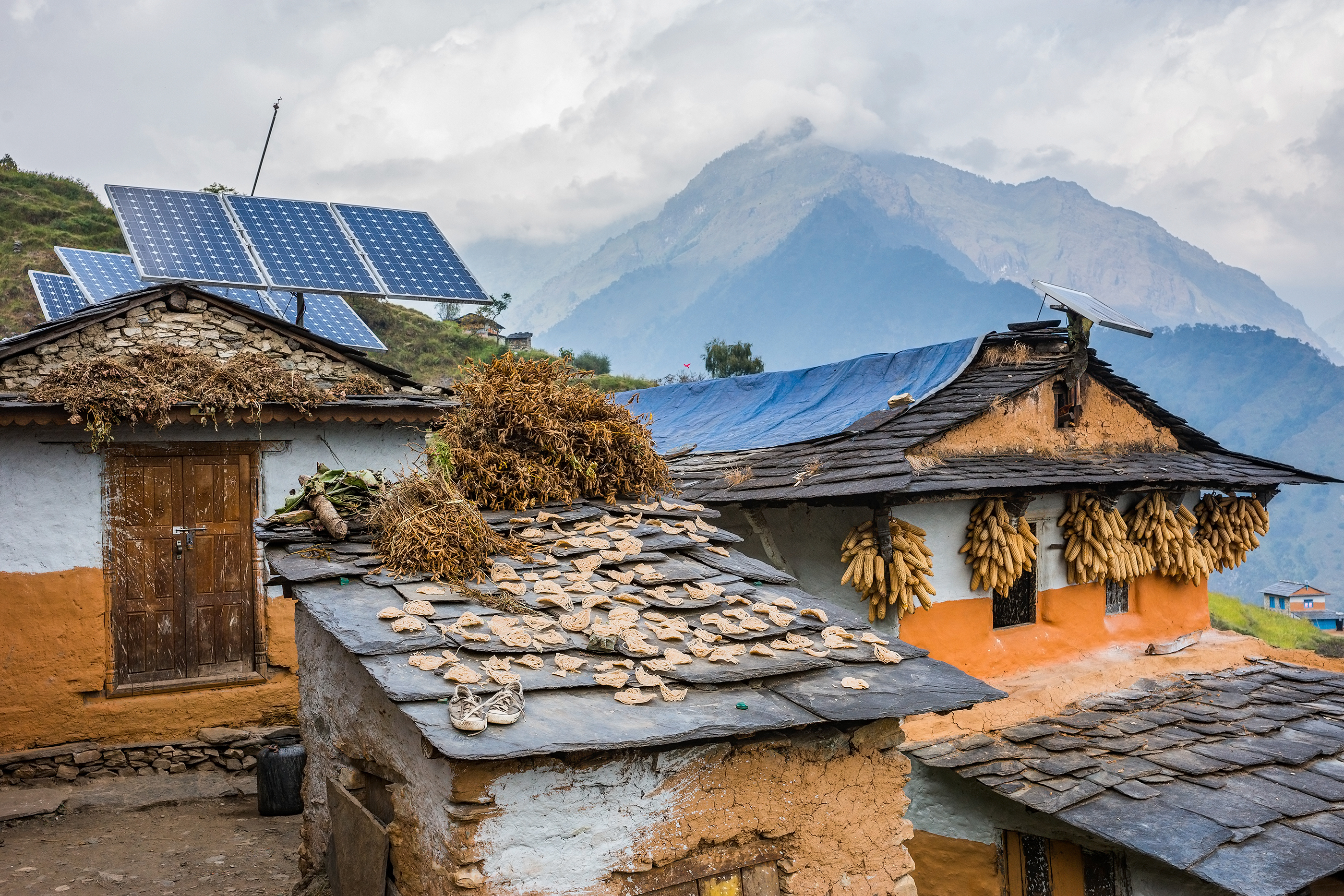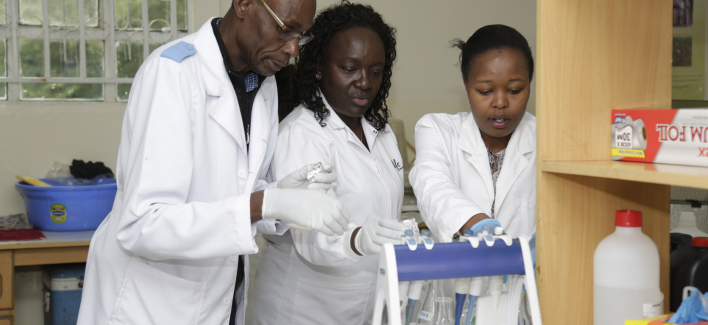- https://awardfellowships.org/news/gender-responsive-policies-that-address-the-needs-of-women-can-improve-african-food-security-un-event-hears/
- https://awardfellowships.org/news/online-facilitation-skills-leading-virtual-teams-productively/
- https://awardfellowships.org/news/online-facilitation-skills-leading-virtual-teams-productively/
- https://awardfellowships.org/news/award-welcomes-60-emerging-climate-scientists-from-africa-and-europe-into-the-one-planet-fellowship/

Between 2008 and 2023, AWARD facilitated the growth and development of 957 researchers and leaders from Kenya. Out of the fellowship beneficiaries, 287 were fellowship beneficiaries. Forty-one(41) Fellows were sponsored to partake in Advance Science Training (AST) research attachments. Additionally, AWARD has enhanced the skills of 635 trainees on leadership, science, mentoring, and gender, drawn from various institutions in Kenya, including but not limited to Kenya Agricultural and Livestock Research Organisation (KALRO), Pwani University, and University of Nairobi (UoN), International Livestock Research Institute (ILRI), World Agroforestry Centre (CIFOR-ICRAF), Ministry of Agriculture, Livestock and Fisheries (Kenya), International Centre of Insect Physiology and Ecology (ICIPE), and Egerton University among others.
Our work in Kenya
- The Kenya country chapter (KeAWARD): Launched in November 2018, AWARD supported the chapter in various activities, including initiating learning centers for agricultural and scientific innovations, mentoring groups of women and youths involved in agricultural projects, and organizing role modeling events across the country. In June 2021, AWARD supported the chapter in mini-school outreach programs in selected counties, Training of Trainers for Agricultural Extension Officers in Laikipia County, a two-day training session on 'Enhancing dairy farming for women farmers and agricultural extension officers' in Nakuru County, and the 2021 International Women’s Day Mentorship activity at Loresho Secondary School (March 2021). Forty (40) high school girls participated in the lab experiments in March 2019. Following the experimental sessions at Precious Blood Riruta High School, Nairobi, AWARD hosted a mentorship event facilitated by the Kenyan Country Chapter. In September 2023, the Kenya Chapter won a Grant to Advance Gender Equity and Climate Action. Read more about Country Chapters.
- Gender Training for KALRO and Pwani University: In July 2016, AWARD trained 30 senior managers from KALRO headquarters with skills and knowledge to work with gender. AWARD involved managers and top scientists in the sensitization and buy-in in support of gender responsive agriculture initiatives that followed subsequently. The short awareness course was useful in promoting or creating the need for gender in research. AWARD and Pwani University collaborated for the delivery of a half-day training on gender (23 emerging scientists, April 8, 2019) on the sideline of the AfriPlantSci Conference co-organized by Pwani University and John Innes Centre (JIC) and a three-day Gender and Leadership Course for senior managers (24 participants from Pwani University, April 2019, Kilifi, Kenya). This collaboration aimed to build and strengthen leadership skills from a gender perspective to ensure increased awareness, increased capacity, advocacy and dialogue for systematic gender integration at Pwani University. Read more about Gender in Agricultural Research Series.
Contrary to popular belief, Lorem Ipsum is not simply random text. It has roots in a piece of classical Latin literature from 45 BC, making it over 2000 years old. Richard McClintock, a Latin professor at Hampden-Sydney College in Virginia, looked up one of the more obscure Latin words, consectetur, from a Lorem Ipsum passage, and going through the cites of the word in classical literature, discovered the undoubtable source
- Lorem ipsum dolor sit amet, consectetur adipiscing elit,
- sed do eiusmod tempor incididunt ut labore et dolore magna aliqua.
- Ut enim ad minim veniam, quis nostrud exercitation ullamco
- laboris nisi ut aliquip ex ea commodo consequat.

The standard Lorem Ipsum passage, used since the 1500s
"Lorem ipsum dolor sit amet, consectetur adipiscing elit, sed do eiusmod tempor incididunt ut labore et dolore magna aliqua. Ut enim ad minim veniam, quis nostrud exercitation ullamco laboris nisi ut aliquip ex ea commodo consequat. Duis aute irure dolor in reprehenderit in voluptate velit esse cillum dolore eu fugiat nulla pariatur. Excepteur sint occaecat cupidatat non proident, sunt in culpa qui officia deserunt mollit anim id est laborum."
Section 1.10.32 of "de Finibus Bonorum et Malorum", written by Cicero in 45 BC
"Sed ut perspiciatis unde omnis iste natus error sit voluptatem accusantium doloremque laudantium, totam rem aperiam, eaque ipsa quae ab illo inventore veritatis et quasi architecto beatae vitae dicta sunt explicabo. Nemo enim ipsam voluptatem quia voluptas sit aspernatur aut odit aut fugit, sed quia consequuntur magni dolores eos qui ratione voluptatem sequi nesciunt. Neque porro quisquam est, qui dolorem ipsum quia dolor sit amet, consectetur, adipisci velit, sed quia non numquam eius modi tempora incidunt ut labore et dolore magnam aliquam quaerat voluptatem. Ut enim ad minima veniam, quis nostrum exercitationem ullam corporis suscipit laboriosam, nisi ut aliquid ex ea commodi consequatur? Quis autem vel eum iure reprehenderit qui in ea voluptate velit esse quam nihil molestiae consequatur, vel illum qui dolorem eum fugiat quo voluptas nulla pariatur?"
1914 translation by H. Rackham
"But I must explain to you how all this mistaken idea of denouncing pleasure and praising pain was born and I will give you a complete account of the system, and expound the actual teachings of the great explorer of the truth, the master-builder of human happiness. No one rejects, dislikes, or avoids pleasure itself, because it is pleasure, but because those who do not know how to pursue pleasure rationally encounter consequences that are extremely painful. Nor again is there anyone who loves or pursues or desires to obtain pain of itself, because it is pain, but because occasionally circumstances occur in which toil and pain can procure him some great pleasure. To take a trivial example, which of us ever undertakes laborious physical exercise, except to obtain some advantage from it? But who has any right to find fault with a man who chooses to enjoy a pleasure that has no annoying consequences, or one who avoids a pain that produces no resultant pleasure?"
Lorem Ipsum comes from sections 1.10.32 and 1.10.33 of "de Finibus Bonorum et Malorum" (The Extremes of Good and Evil) by Cicero, written in 45 BC. This book is a treatise on the theory of ethics, very popular during the Renaissance. The first line of Lorem Ipsum, "Lorem ipsum dolor sit amet..", comes from a line in section 1.10.32.
The standard chunk of Lorem Ipsum used since the 1500s is reproduced below for those interested. Sections 1.10.32 and 1.10.33 from "de Finibus Bonorum et Malorum" by Cicero are also reproduced in their exact original form, accompanied by English versions from the 1914 translation by H. Rackham.
There are many variations of passages of Lorem Ipsum available, but the majority have suffered alteration in some form, by injected humour, or randomised words which don't look even slightly believable. If you are going to use a passage of Lorem Ipsum, you need to be sure there isn't anything embarrassing hidden in the middle of text.
All the Lorem Ipsum generators on the Internet tend to repeat predefined chunks as necessary, making this the first true generator on the Internet. It uses a dictionary of over 200 Latin words, combined with a handful of model sentence structures, to generate Lorem Ipsum which looks reasonable. The generated Lorem Ipsum is therefore always free from repetition, injected humour, or non-characteristic words etc.
It is a long established fact that a reader will be distracted by the readable content of a page when looking at its layout. The point of using Lorem Ipsum is that it has a more-or-less normal distribution of letters, as opposed to using 'Content here, content here', making it look like readable English.

Kenya Country Chapter
About
The Kenyan Chapter of AWARD (Ke-AWARD) was formed in 2016 to strengthen and advance AWARD’s strategy of empowering African Scientists, National Research and Agricultural institutions and Academia to better respond to the needs of agricultural communities at the local level. It aims to use a multipronged approach in addressing food security concerns in order to achieve a wholesome sustainable development. Having gained immense knowledge, skills and attitudes during the AWARD fellowship, Chapter members are determined to be change makers, achieve development impact, remain relevant and develop future leaders and experts in STEM and agricultural careers. The Chapter’s activities are anchored on the member’s capacity and skills and therefore span across a wide scope of agricultural-oriented activities designed to make the Chapter more inclusive yet at the same time focused on its fundamental mandate of enhancing agricultural research and development that is appropriate, with high prospect of achieving livelihood outcomes.
Kenya Chapter of the African Women in Agricultural Research and Development (Ke-AWARD) is an organisation of over 200 former fellows, mentors and fellow mentees of the African Women in Agricultural Research and Development (AWARD) Program.
In line with AWARD agenda, Ke-AWARD’s broad mission is to catalyse networks for advocacy, knowledge sharing, and intra-country collaboration.
Vision
Ke-AWARD envisions itself as an organization that empowers agricultural communities and school learners.
Mission
To contribute towards improved and sustainable agricultural production, productivity and commercialization in Kenya through collaborative research and innovations, capacity building, policy and advocacy.
Website: http://keaward.co.ke/
Objectives
- To promote sustainable food and nutrition security through innovative research, capacity building; improved production and productivity; post-harvest handling; value addition and marketing among small holder farmers in Kenya
- To empower women and upcoming scientists in agricultural research and development through mentorship, capacity building and advocacy in a gender responsive manner
- To enhance networking and collaborative partnership for professional development and visibility for Ke-AWARD internally and externally
- To mobilize resources for supporting Ke-AWARD activities
- To influence policy in agricultural research and development
Goals
Ke-AWARD recognizes the inner strength of women, which makes them leaders in all aspects of the agricultural value chains. The focus is to enhance this strength to achieve sustainable livelihood impact. Hence the motto:
“Strength of a woman”
KENYA Country Chapters
The Kenyan Chapter of AWARD (Ke-AWARD) was formed in 2016 to strengthen and advance AWARD’s strategy of empowering African Scientists, National Research and Agricultural institutions and Academia to better respond to the needs of agricultural communities at the local level. It aims to use a multipronged approach in addressing food security concerns in order to achieve a wholesome sustainable development. Having gained immense knowledge, skills and attitudes during the AWARD fellowship, Chapter members are determined to be change makers, achieve development impact, remain relevant and develop future leaders and experts in STEM and agricultural careers. The Chapter’s activities are anchored on the member’s capacity and skills and therefore span across a wide scope of agricultural-oriented activities designed to make the Chapter more inclusive yet at the same time focused on its fundamental mandate of enhancing agricultural research and development that is appropriate, with high prospect of achieving livelihood outcomes.






